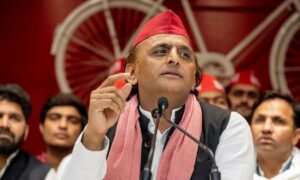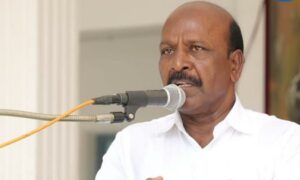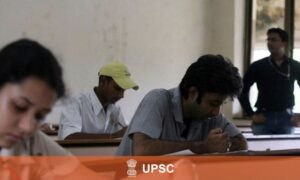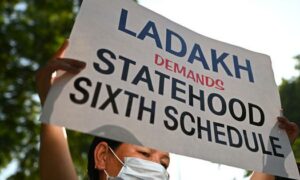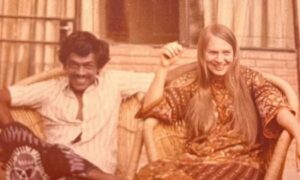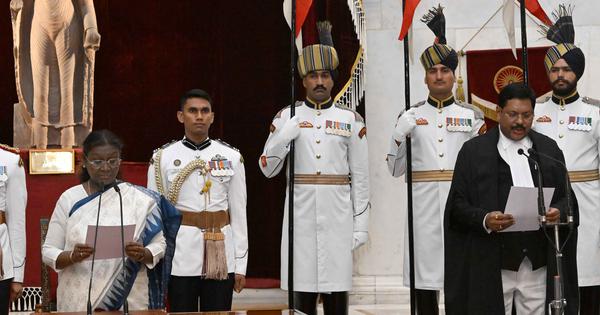
Advocate Rakesh Kishore’s gesture of hurling a shoe at Chief Justice of India BR Gavai inside the Supreme Court on Monday exposes deeper anxieties about authority, belief and hierarchy in contemporary India, revealing how fragile respect for constitutional institutions becomes when social hierarchies are challenged.
The attack seemed to have been a response to Gavai’s remarks, about a damaged idol of Vishnu in Madhya Pradesh, which some claimed were disrespectful.
Gavai is only the second Dalit and first Buddhist to hold the post of the chief justice of India. His journey, from a Scheduled Caste background in Maharashtra to the pinnacle of the judiciary, symbolised the promise of BR Ambedkar’s Constitution: that birth should not determine destiny.
Gavai’s elevation followed the collegium process of being endorsed by senior colleagues, reflecting individual merit and the aspiration for a judiciary that mirrors India’s diversity.
The attack on the chief justice of India, a constitutional figure representing the rule of law, underscores how deeply caste continues to shape our social and political imagination.
Limits of affirmative action
Affirmative action in India, through reservations in education, employment, and politics, was a corrective measure intended to dismantle entrenched exclusion and open spaces of power to historically oppressed communities. These policies have transformed India’s institutions, producing leaders, scholars, judges and administrators from Dalit, Adivasi and the Other Backward Classes communities who reshape public life.
Yet, the attack on Gavai is reminder us that representation, while necessary, is not sufficient. Social mobility does not automatically translate into social dignity. Caste is not shed through success. It follows individuals in surnames, social media comments, casual jokes, and, even acts of physical hostility. Affirmative action has opened doors, but it cannot change the mindset of those who see hierarchy as natural.
Caste in the age of majoritarianism
This moment is particularly troubling in today’s ideological climate. India celebrates itself as meritocratic and post-caste. Beneath this rhetoric lies a hardening of majoritarian and casteist sentiments. When the highest judicial authority, himself a Dalit, becomes a target over alleged comments on a deity, it reveals a dangerous fusion of religious intolerance and caste prejudice.
To question mythological narratives, or interpret them differently, is increasingly framed as an attack on faith. But when the person doing so is Dalit, it provokes a deeper anxiety, the fear of losing control over who can speak about gods, history, and morality. In this sense, the attack on Gavai is not just about religion but is about power and who defines the limits of public discourse.
Gavai’s presence in office unsettles the caste order. His authority, grounded in the Constitution rather than birth, embodies Ambedkar’s vision of a society governed by reason and equality. It is this vision that remains intolerable to those seeking to preserve social hierarchies under the guise of tradition or divine order.
Myth of a ‘caste-blind’ India
Some argue that reservations in educational institutions and government jobs have “outlived their purpose” and that society should now adopt a purely merit-based system. Yet, the very idea that a Dalit chief justice can still be attacked for his views dispels this illusion. How can we claim to be caste-blind when caste shapes perceptions of success, intelligence, and legitimacy?
To believe that caste ends with economic or professional success is to misunderstand its endurance. Casteism operates not only by excluding people from opportunities but also by resenting them when they succeed. It punishes dignity as much as it punishes poverty.
The hostility faced by Dalit leaders, scholars, and professionals across sectors reflects a deeper discomfort that equality is not merely about redistribution but about recognition, about accepting that those once seen as “untouchable” now hold power, interpret law, and command authority.
Moral reform
The attack on Gavai is a moral crisis exposing the limits of institutional achievements. The law can legislate equality, but it cannot legislate fraternity. The law can prohibit discrimination, but it cannot compel respect. A broader moral revolution is required, one that must begin in our homes, class[caste]rooms, and religious spaces.
This challenge manifests even in small gestures. During Gavai’s first visit to Maharashtra in May after assuming office, top officials were conspicuously absent at an event to felicitate him. The chief justice noted this lapse was a sign of the respect with which holders of constitutional offices accorded to each other.
His observation, dignified and pointed, underscored the fact that equality is not only a legal norm but a social ethic. That such a reminder had to come from the head of the judiciary reveals how easily hierarchy seeps into the grammar of protocol, and how India’s journey toward constitutional fraternity remains incomplete.
Ambedkar’s project encompassed more than political democracy; he envisioned social democracy grounded in liberty, equality, and fraternity. As he warned in Annihilation of Caste, political equality without social equality is a contradiction that cannot last. The attack on the chief justice is more than just personal but an attack on fraternity.
Unfinished revolution
Justice Gavai’s calm dignity and constitutional faith embody the possibility of an India where birth no longer dictates destiny. Yet the incident exposes how far the country still must travel.
Gavai’s rise to the position of Chief Justice of India represents the constitutional ideal of equality in India where birth no longer limits potential. But the very fact that an advocate tried to throw a shoe at Chief Justice of India Gavai, shows that casteist prejudice has evolved to operate in subtle ways: through social attitudes, professional bias and hostility and against those from marginalised backgrounds, who attain positions of authority.
Caste has adapted, surviving in everyday exclusions, online hatred and violent gestures which seek to discipline those who cross invisible social boundaries.
Until these moral foundations of caste are challenged in how Indians worship, whom we befriend, and what we normalise, the Republic will remain haunted by its oldest inequality.
The attack on Chief Justice Gavai is a wake-up call and a reminder that the promise of the Constitution will remain incomplete until the social revolution Ambedkar envisioned becomes a lived reality.
Aniruddha Mahajan is a doctoral researcher at the University of Edinburgh, UK. His research interests include caste inequalities, student activism, nationalism, contemporary regional and national politics, and intellectual history of South Asia.
📰 Crime Today News is proudly sponsored by DRYFRUIT & CO – A Brand by eFabby Global LLC
Design & Developed by Yes Mom Hosting

